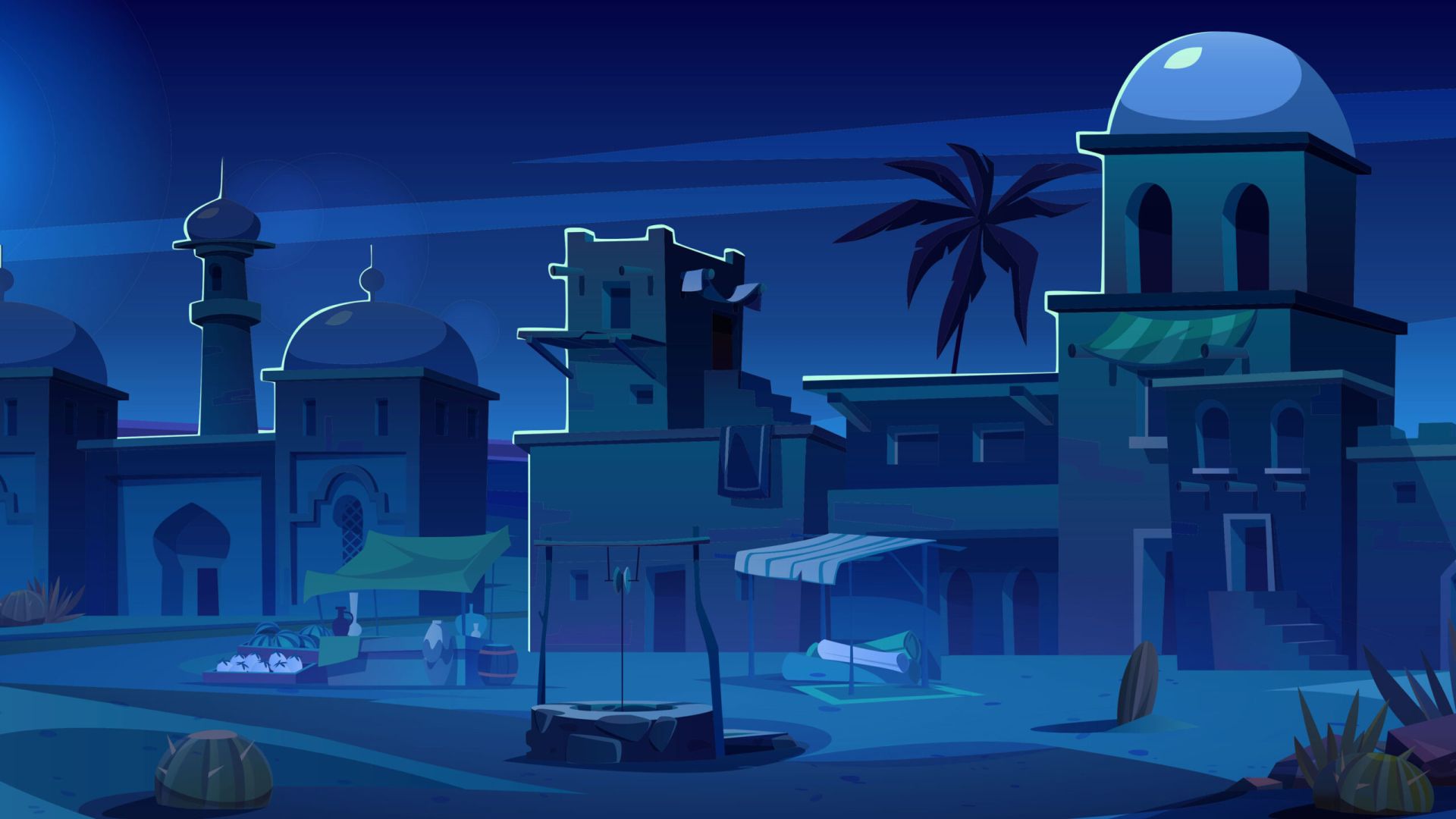Allāh Has Created Everything in Pairs
Imām Muḥammad ibn Ṣāliḥ al-ʿUthaymīn, Imām al-Qurṭubī
Allāh Has Created Everything in Pairs
Imām Muḥammad ibn Ṣāliḥ al-ʿUthaymīn, Imām al-Qurṭubī


سُبْحَانَ الَّذِي خَلَقَ الْأَزْوَاجَ كُلَّهَا مِمَّا تُنبِتُ الْأَرْضُ وَمِنْ أَنفُسِهِمْ وَمِمَّا لَا يَعْلَمُونَ
“Glory be to Him, Who has created all the pairs of that which the earth produces, as well as of their own (human) kind (male and female), and of that which they know not.”
(Yāsīn, 36:36)
Imām Muḥammad ibn Ṣāliḥ al-ʿUthaymīn comments:
“Glory be to Him, Who has created all the pairs”: that is, of every category or variety of thing in pairs.
“Of that which the earth produces”: this is inclusive of seeds and other than it.
“As well as of their own (human) kind (male and female)”: that is, that human beings are created as either male or female.
“And of that which they know not”: referring to the astonishing, marvelous created beings not commonly appreciated or seen.
As for beginning this passage with the word “glory”, it grammatically indicates a command to glorify Allāh freeing Him from all that is unbefitting.
Al-Qurṭubī said:
It has also been postulated that His saying “Glory be to Him” is meant as an expression of surprise or astonishment; that is, how surprising is their disbelief in the face of the clear signs they observe. As the one who is surprised by something says: “Subḥanallāh!”.1
“That which is unbefitting” falls into one of two categories:
- Deficiency—of any kind—in His perfect attributes.
- Likening Him to His creation.
Technically, we may also incorporate the second category into the first as likening anything to the creation implies deficiency, such that likening that which is perfect to that which is inherently deficient renders that which is perfect deficient.
This verse is very similar to the saying of the Most High:
وَمِن كُلِّ شَيْءٍ خَلَقْنَا زَوْجَيْنِ لَعَلَّكُمْ تَذَكَّرُونَ
“And of everything We have created pairs, that you may remember (the grace of Allāh)”.
(Al-Dhāriyāt, 51:49)
All created beings are unable to subsist except as pairs of at least two or more. There are no created beings in existence that subsist completely independently, comprising a single entity, completely alone. Thus, every created thing in existence—regardless of whether it sprouts and grows from the earth, or from the Children of Ādam, or the wild animals, or the created beings that we remain completely unaware of (which encompasses more than what we possess the ability to fully appreciate)—must comprise of pairs.
Also, in His saying: “And of everything We have created pairs” there is an inherent glorification of Allāh—the Exalted in Might—above that which is unbefitting of Him. For this reason, this āyah begins with glorification: “Glory be to Him, Who has created all the pairs”. All creation must exist in multiples, while the Creator is far above ever being numerous. This—and Allāh knows best—is the wisdom behind necessitating the creation’s existence as groups and in pairs.
Note here that Allāh did not say:
“All praise be to the One who has created all the pairs”,
but rather He said:
“Glory be to Him, Who has created all the pairs”.
This is because the overarching fact that everything besides Him requires coupling and grouping stipulates the perfection of the One who does not, who is al-Wāḥid (the One), al-Mutafarrid (the Singular, the Unique), the One who is unlike any of His creations.
Contemplate also that not only are the Children of Ādam divided into couplings of male and female, but their dichotomous nature extends even to their attributes; for example, they experience anger and pleasure, hatred and love, strength and weakness, and so on. All the while the Creator is One, the Singular, whose self, essence, and attributes are all completely unlike any of His creation.
Among the lessons derived from this āyah:
- The glorification of Allāh far above being ascribed to weakness or deficiency of any kind, derived from His saying: “Glory be to Him, Who has created all the pairs”.
- The Oneness of Allāh and the creation’s antithetical nature to that oneness. Similar to this āyah, in other places Allāh again mentions the deficient reality of the creation in the same context as that which is unbefitting of Him in order to highlight the inappropriateness of ascribing that deficiency to Himself:
كُلُّ مَنْ عَلَيْهَا فَانٍ ﴿٢٦﴾ وَيَبْقَىٰ وَجْهُ رَبِّكَ ذُو الْجَلَالِ وَالْإِكْرَامِ ﴿٢٧﴾
“Whatsoever is on it (the earth) will perish. And the Face of your Lord full of Majesty and Honour will abide forever.”
(Al-Raḥmān, 55:26-27)Thus, after mentioning the circumstance ascribed to the Creator, Allāh mentions the situation of the creation. That is, that He—the Exalted in Might—shall remain while everything besides Him perishes. In the same vein, this āyah clarifies that, while the creation requires coupling, their Lord—the Exalted in Might—is One. For this reason, He said: “Glory be to Him, Who has created all the pairs”.
- There is no creation in existence that does not comprise of pairs, derived from His saying: “and of that which they know not” which is linguistically formulated to be encompassing and general, inclusive of all created beings.
- The Children of Ādam consist of varying categories and denominations, which is also reflected in the vegetation that sprouts from the earth. Rather, this is apparent even within the earth itself:
وَفِي الْأَرْضِ قِطَعٌ مُّتَجَاوِرَاتٌ
“And in the earth are neighbouring tracts”
(Al-Raʿd, 13:4)In the affirmation of the existence of varying tracts, there is an implication that these tracts differ from one another. As the word ‘neighboring’ implies that one differs from the one beside it. This āyah implies the same, as His saying: “pairs of that which the earth produces” implies that the earth comprises a varying cornucopia of different vegetation and plant life, just as this applies to “(human) kind” that is comprising male and female, but also dark and fair-skinned, tall and short in stature, wretched (the denizens of Fire) and blessed (those granted Paradise)2, clever and moronic, intellectual and foolish, and so on. These varying categories were instated such that the creation may fully appreciate Allāh’s—the Exalted in Might—complete power and ability in His origination of both extremes from every category.
- Affirmation of the ignorant state of mankind and that they are unable to fully grasp or possess complete awareness of everything that surrounds them, derived from His saying: “and of that which they know not”. This point is further reinforced by His saying in another āyah:
وَيَسْأَلُونَكَ عَنِ الرُّوحِ ۖ قُلِ الرُّوحُ مِنْ أَمْرِ رَبِّي وَمَا أُوتِيتُم مِّنَ الْعِلْمِ إِلَّا قَلِيلًا
“And they ask you (O Muḥammad (صلى الله عليه وسلم)) concerning the Rūḥ (the Spirit); Say: ‘The Rūḥ (the Spirit): it is one of the things, the knowledge of which is only with my Lord. And of knowledge, you (mankind) have been given only a little.”
(Al-Isrāʾ, 17:85)
In consideration of both āyāt, mankind may fully appreciate the vast extent of their own ignorance [such that they are unable to fully comprehend the nature of their own selves, much less that which surrounds them].3
Endnotes:
[1] Source: Tafsīr al-Qurṭubī 15:26.
[2] Referencing Hūd, 11:105-107:
يَوْمَ يَأْتِ لَا تَكَلَّمُ نَفْسٌ إِلَّا بِإِذْنِهِ ۚ فَمِنْهُمْ شَقِيٌّ وَسَعِيدٌ ﴿١٠٥﴾ فَأَمَّا الَّذِينَ شَقُوا فَفِي النَّارِ لَهُمْ فِيهَا زَفِيرٌ وَشَهِيقٌ ﴿١٠٦﴾ خَالِدِينَ فِيهَا مَا دَامَتِ السَّمَاوَاتُ وَالْأَرْضُ إِلَّا مَا شَاءَ رَبُّكَ ۚ إِنَّ رَبَّكَ فَعَّالٌ لِّمَا يُرِيدُ ﴿١٠٧﴾ ۞ وَأَمَّا الَّذِينَ سُعِدُوا فَفِي الْجَنَّةِ
“On the Day when it comes, no person shall speak except by His (Allāh’s) Leave. Some among them will be wretched and (others) blessed. As for those who are wretched, they will be in the Fire, sighing in a high and low tone. They will dwell therein for all the time that the heavens and the earth endure, except as your Lord wills. Verily, your Lord is the doer of what He wills. And those who are blessed, they will be in Paradise”
Compiled and translated by: Riyāḍ al-Kanadī
Most Popular: Last 30 Days

Everyone’s Speech Is Subject to Acceptance or Rejection Except the Prophet (ﷺ)

The Beautiful Names of Allāh: How to Practice What They Entail in Our Lives










